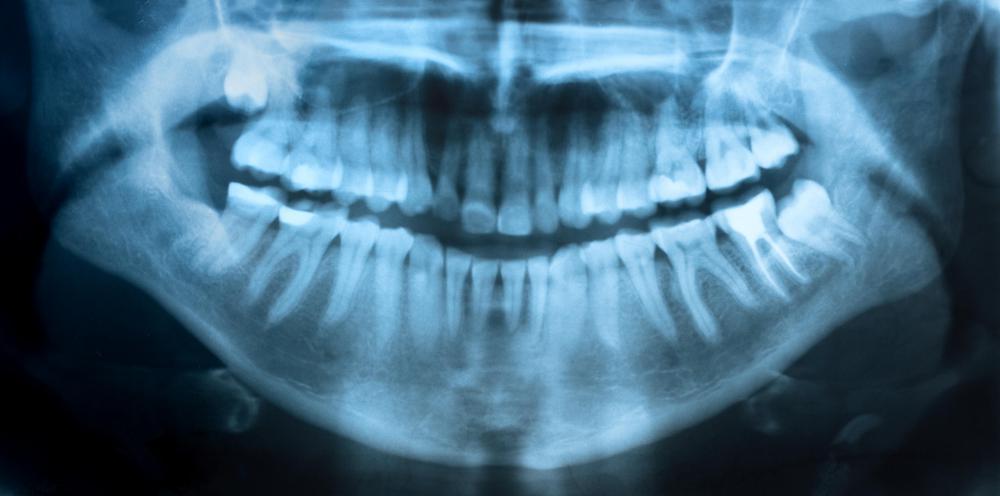At TheHealthBoard, we're committed to delivering accurate, trustworthy information. Our expert-authored content is rigorously fact-checked and sourced from credible authorities. Discover how we uphold the highest standards in providing you with reliable knowledge.
How Do I Relieve Dental Fillings Pain?
If you are experiencing dental fillings pain, you need to consider how recently you had the fillings put in your teeth. New fillings may require a period of adjustment, so you may be able to use over-the-counter or topical pain relievers to address your discomfort until your mouth heals and you get used to your new dental work. On the other hand, dental fillings pain can be a sign that one of your fillings has cracked or moved and decay has set in. Pain can also be a sign of an incorrectly placed filling, so it is a good idea to contact your dentist and set up an appointment so that he or she can look at your tooth and discover the cause of your pain. Various treatments range from the use of over-the-counter pain killers to replacing the filling to a root canal on a seriously damaged tooth.
After you get a cavity filled, your dentist may inform you that your tooth may be sensitive for a little while. Although this sensitivity is typically a temporary condition, it can be uncomfortable, so there are several things that you can do to address dental fillings pain right after treatment. The first thing you can do is avoid foods and behaviors that trigger sensitivity. For many people, very hot or very cold foods and drinks, as well as some sweets, can trigger tooth and dental fillings pain. Avoid these foods and beverages for a few weeks until your mouth gets used to the filling. There are various toothpastes on the market formulated for use with sensitive teeth, and their regular use can greatly reduce tooth sensitivity and your discomfort.

If you find that your tooth remains sensitive several weeks after receiving a filling or you begin to experience pain in teeth that were filled some time ago, contact your dentist. Your dentist can examine the tooth and order x-rays that can help him or her understand what may be causing your tooth pain. If infection is spotted, he or she may prescribe antibiotics, and you can discuss various options for treating the tooth. Your dentist may be able to replace your filling, place the crown on the tooth, or, if necessary, recommend a root canal. Treatment is important, as dental decay is typically progressive and may result in severe damage to your teeth and mouth and may even contribute to disease in other parts of your body.
AS FEATURED ON:
AS FEATURED ON:















Discussion Comments
I just had two fillings done on some large cavities that I have had for awhile. I should have had them filled a long time ago. Now my teeth are really sensitive and I try to avoid anything that is too hot or too cold. If I used a toothpaste that was specifically for sensitive teeth, would this really make a difference in how my teeth feel?
One of my friends has had a lot of radiation done to her head because of a history of a rare type of sinus cancer. The radiation must have really taken a toll on her teeth as she has had to have everyone of her fillings replaced with a permanent crown.
The good part about this is she shouldn't have any more problems with these teeth, but it sure wasn't cheap. It is hard to say if it was the radiation that caused the problems or if they were just old fillings that needed to be replaced, but it seems odd than she had to have it done to everyone of her old fillings.
I hate going to the dentist and really groan when he says I need to have a tooth filled. This last time it seemed to take longer than I remembered for everything to feel just right again. I would chew on the opposite side of my mouth just to avoid further pain. Eventually everything adjusted to normal and I don't have any pain at all now.
I had several dental fillings done when I was a young girl and then went for years without having any more cavities. One day when I was chewing on a piece of peanut brittle, I had a lot of pain in one tooth.
When I went to the dentist he said that filling had cracked and I needed to have a new one put on. He also said most of the other old fillings I had needed to be replaced as the same thing would probably happen. It was better to take care of them sooner rather than later.
I am glad I didn't have to put up with the pain for very long before he fixed the problem. Those old fillings had lasted for a long time, but I guess you can't expect them to last a lifetime.
Post your comments